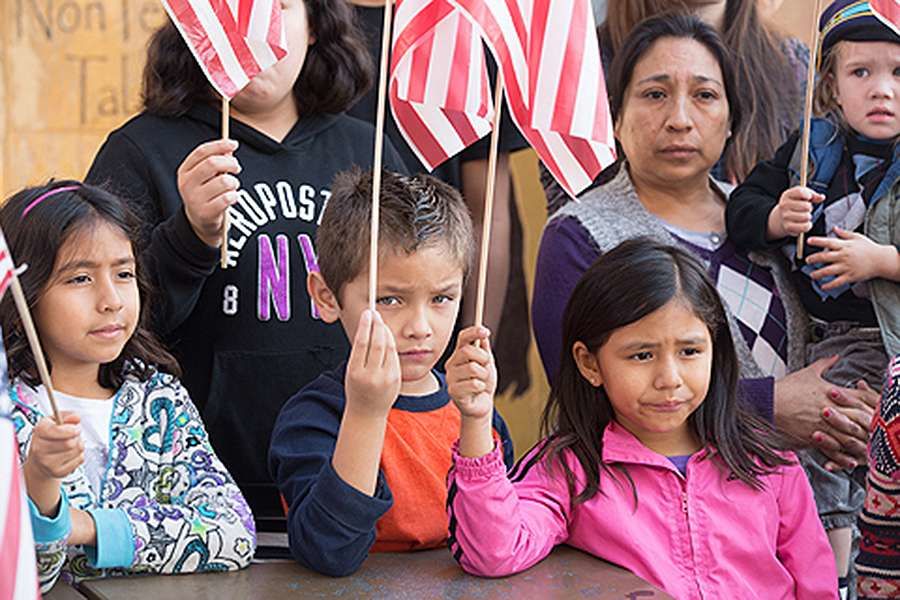The Trump administration's ending of a program that helped reunite Central American minors with their parents in the U.S. has drawn strong objections from the U.S. bishops.
The administration decided to end refugee processing in Honduras, El Salvador, and Guatemala for those who apply for U.S. entry through the Central American Minors program. The program had allowed some parents legally present in the U.S. to request a refugee resettlement interview for their children and other family members like the child’s other parent, a caregiver, or a grandchild, ABC News reports.
“This decision of the administration unnecessarily casts aside a proven and safe alternative to irregular and dangerous migration for Central American children,” said Bishop Joe Vasquez of Austin, head of the U.S. bishops’ Committee on Migration. Terminating the entire program will “neither promote safety for these children nor help our government regulate migration,” he said Nov. 9.
“Pope Francis has called on us to protect migrant children, noting that ‘among migrants, children constitute the most vulnerable group’,” the bishop continued.
The Central American Minors program was established in 2014, at the height of the surge of unaccompanied migrant children coming to the U.S.-Mexico border from Central America, primarily El Salvador, Guatemala, and Honduras.
There were about 14,000 applications to the program, with 8,000 having been processed. A total of 3,328 children and family members were admitted as refugees and parolees. Another 6,000 people’s applications are still under consideration.
Vasquez offered prayers for those affected.
“We continue to pray and express our support for parents who endure anxiety and emotional hardship knowing their children will continue to languish in violence; and to the children themselves, who will not be able to reunite and embrace their parents,” he said.
A U.S. State Department official told ABC News the program was ended “as part of the overall U.S. government review of the U.S. Refugee Admissions Program” for fiscal year 2018.
Some critics of the program said many applicants did not meet the legal definition of a refugee because they were fleeing violent conflict, but not persecution of some kind.
Vasquez said the program, which had previously included both refugee and parole options, should have been maintained “precisely because it provided a legal and organized way for children to migrate to the United States and reunify with families.”
Vasquez cited the August decision to end the program’s parole option for Central American migrants. That decision caused “heartbreaking family separation for families who have learned that their child has no safe means of arriving to the U.S.”
Ending the overall program will “sadly perpetuate more of the same family breakdown,” he said.
The bishop was “deeply disappointed” that the administration decided to terminate the program in its entirety. He said it was “especially troubling” to have a short cutoff date for accepting applications to the program.
There was barely a day’s advance notice to those who provide services, he said.
The State Department recently ended temporary protected status for Nicaraguans, meaning about 2,500 Nicaraguans must leave before January 2019 or face deportation. Many of them have been living in the U.S. for years and have children. Protected status for Hondurans has been extended another six months.

